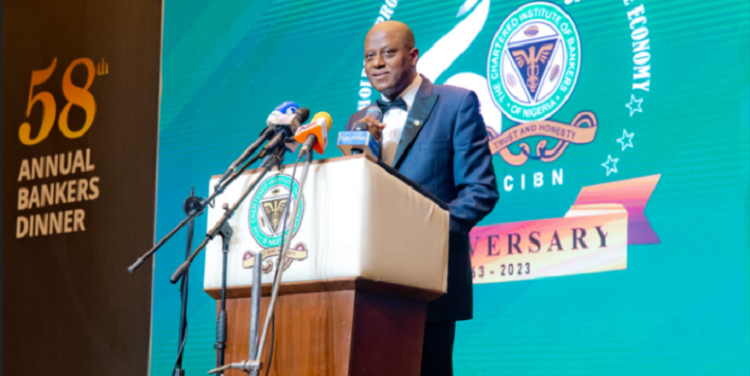Yemi Cardoso FX Policies seem to be failing woefully as the exchange rate nears N2,000/$1.
NewsOnline Nigeria had earlier reported that the exchange rate between the naira and the dollar has depreciated to an all-time low, reaching N1,537.96/$1 at the official market.
This decline has occurred despite various policies implemented by Yemi Cardoso-led Central Bank aimed at halting the currency’s devaluation.
In the parallel market, where the naira is also traded, operators have reported to NewsOnline Nigeria that the exchange rate has hit N1650/$1. However, they note that the actual rate could vary, potentially being lower or higher, depending on the availability of dollars.
SEE ALSO: Dollar To Naira Exchange Rate Falls Massively, Crashes Above N1600/$
An importer shared with Nairametrics that, in a bid to secure currency, he offered to purchase $1 million at a rate of N1,700/$1. Unfortunately, he was unable to procure the dollars, indicating that the supply of the currency is severely constrained.
Yemi Cardoso Policies not saving naira, yet?
NewsOnline Nigeria reports that the exchange rate has experienced a significant depreciation of 10% since Yemi Cardoso initiated a series of foreign exchange reforms.
These reforms according to him were designed to enhance the supply of foreign exchange while also reducing restrictions on demand.
As of January 31, following a directive from the Central Bank instructing banks to manage their net open positions, the exchange rate stood at N1,455/$1 in the official market but deteriorated to close at N1,577.9/$1.
This rapid depreciation indicates that the market might be skeptical about the effectiveness of the Central Bank’s forex policies, as an anticipated increase in forex inflows has not materialized.
In just the past two weeks, the Central Bank has released over six circulars and implemented policy actions aimed at further liberalizing the sector.
One of the most notable measures includes a move towards a market-driven exchange rate mechanism, which could potentially lead to the Naira being freely floated.
A circular from the Central Bank announced major changes, such as ending the limit on the spread between buy and sell rates in interbank foreign exchange transactions and removing restrictions on the sale of proceeds from interbank transactions.
The circular highlighted, “A key objective of the ongoing foreign exchange market reforms by the Central Bank of Nigeria is to promote a market-based price discovery system,” indicating a shift towards a more liberalized forex regime.
According to the new guidelines, forex transactions are to be conducted on a “Willing Buyer and Willing Seller” basis, which will allow more flexibility in exchange rates as they will be determined by market forces.
This approach is viewed as a significant step towards adopting a fully floating exchange rate system, where market dynamics are left to determine the rates.
Following the announcement of this policy, the exchange rate in the official market weakened from N1,469/$1 to N1,534/$1. Most recently, the Central Bank issued a circular directing banks to deposit travel allowances for personal and business use into customers’ debit cards instead of disbursing cash as previously practiced.
The policy initiated under the leadership of Godwin Emefiele at the Central Bank did not specifically require banks to make payments exclusively into debit cards.
The apex bank also targeted international oil and gas companies, instructing amending guidelines on cash pooling of their forex inflows, stopping them from remitting 100% of their inflows.
On February 15th, the exchange rate closed at N1,498/$1 but reached an all-time intra-day high of N1607. By the end of the week, the rate had closed at N1,537.96/$1, with an intra-day peak of N1,631/$1.
Structural problems weighing down on exchange rate
NewsOnline Nigeria reports that the persistent depreciation of the naira, despite an increase in forex turnover in the official exchange window, is often attributed to the lack of forex inflow amid rising demand. This sentiment is widely echoed in social media discussions and television commentary. The parallel market exchange rate surpassed N1000/$1 on October 9th, 2023, and the official market followed suit on December 8th, 2023, with the rate continuing to weaken thereafter.
In response to the depreciation last year, the Minister of Finance, Wale Edun, announced that Nigeria was expecting a $1 billion inflow, with a prospective $10 billion in foreign exchange anticipated in the near term, more specifically within weeks rather than months. This statement was made on October 24th, yet nearly four months later, no significant inflow has been recorded.
Nigeria’s external reserves have remained steady at $33 billion, despite World Bank projections suggesting a potential decline to $24 billion by the end of the year.
Amid these challenges, a significant observation was made by Yemi Cardoso during an interview on Arise TV two weeks ago. He highlighted that the stability of the Naira would depend on addressing the underlying economic issues such as inflation, economic growth, and increasing exports.
He emphasized that “The eventual stability of the Naira will be driven by our ability to address the fundamental issues affecting our economy…bring inflation under control and promote the growth of Nigerian businesses such that we eventually export much more than we consume as a nation.”
Recent data from the National Bureau of Statistics (NBS) reveals that Nigeria’s inflation rate climbed to 29.9% in February, underscoring the severe economic challenges the country faces. It appears that without addressing these structural issues, forex policies may struggle to achieve the desired outcomes, including exchange rate stability.
